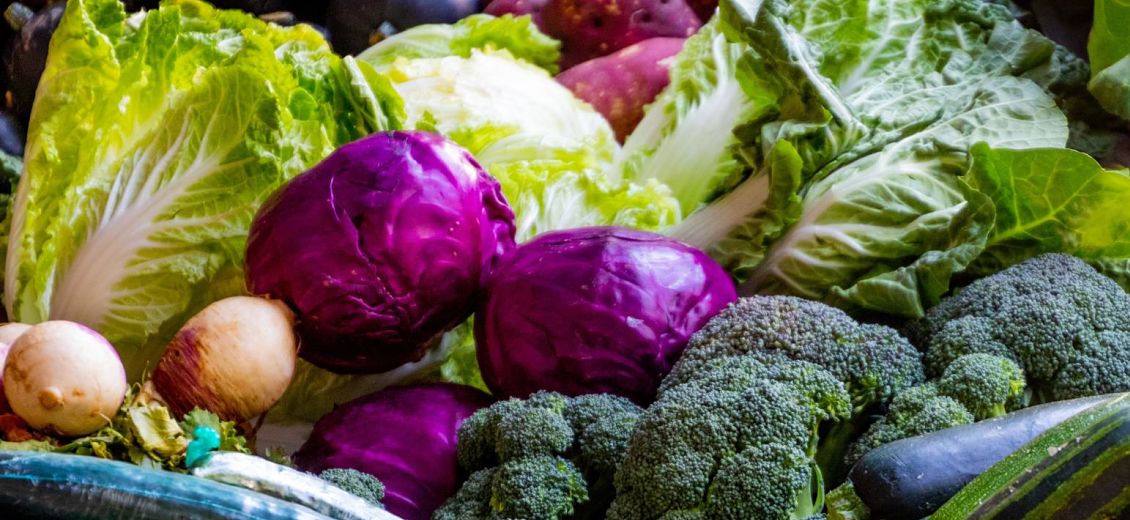High fibre foods that are minimally processed benefit health
16 June 2020
Two new studies have shown that eating more dietary fibre improves life expectancy, but food processing may remove the benefits of eating whole grains.
Healthier Lives researcher Dr Andrew Reynolds (University of Otago) and Director Professor Jim Mann collaborated with others on the two studies, which have implications for the prevention and management of diabetes.
Increasing fibre intake can extend life expectancy

The first study, a systematic review published in PLOS Medicine, analysed data collected from 8,300 adults with type 1 or type 2 diabetes. It showed that those with a higher fibre intake, from foods such as whole grains, legumes, vegetables and whole fruit, had a significantly higher life expectancy than those eating the least fibre.
The study found that those consuming 35g of fibre per day have a 35 per cent reduced risk of dying early when compared with the New Zealander average, which is 19 grams of fibre per day.
This study also analysed 42 trials with 1,789 participants where adults with prediabetes, type 1 or type 2 diabetes were given more fibre and whole grains for at least six weeks.
Consistent improvements in blood glucose control, cholesterol levels and body weight were found when adults with prediabetes, type 1 or type 2 diabetes increased their fibre or wholegrain intake.
Professor Mann has been involved in diabetes research for over 40 years and led the first controlled trials of high fibre diets in diabetes in the 1970s. “It has taken forty years of research and these meta analyses to be able to show that this dietary treatment can have an effect as striking as that produced by medications,” he says.
Lead author and National Heart Foundation Fellow Dr Andrew Reynolds suggests eating more whole grains, legumes, vegetables, and whole fruit to increase fibre intake.
“Try a few different ways to increase your fibre intake, see what works best for you.
“If you eat white refined bread or rolls, try changing to wholegrain bread or rolls. Try brown rice, try brown pasta, try adding half a tin of legumes to meals you already make.
“Try an extra veggie with your main meal – fresh, frozen, or canned without sodium are all good choices.”
Benefits of eating whole grains reduced by food processing

A second study published in Diabetes Care found that while whole grains are an important source of fibre their benefits can be reduced by food processing.
This research was a trial conducted in adults with type 2 diabetes living in Dunedin where food was provided to participants. Participants ate minimally processed wholegrain foods such as wholegrain oats and bread with visible grains for one fortnight, then highly processed wholegrain foods such as instant oats and wholemeal bread for another fortnight.
In the fortnight when participants consumed the minimally processed whole grains, their results showed improved blood glucose levels after meals and reduced variability of blood glucose levels throughout the day, compared to the fortnight when they consumed the highly processed grains.
Participants ate the same amount of food during the trial but the average body weight decreased slightly when eating minimally processed whole grains, and increased slightly when eating the highly processed whole grains.
The results confirm previous research which has shown the health benefits of eating whole grains.
“We are beginning to understand that how foods are processed is really important, and for whole grains when you finely mill them you can remove their benefits,” Dr Reynolds says.
Related links
- Dietary fibre and whole grains in diabetes management: Systematic review and meta-analyses PLOS Medicine (2020); 17(3):e1003053
- Whole-Grain Processing and Glycemic Control in Type 2 Diabetes: A Randomized Crossover Trial Diabetes Care (2020); dc200263
- Nutritional determinants of non-communicable diseases research page
- Higher fibre saves lives, but food processing may remove benefits University of Otago, 19 May 2020


